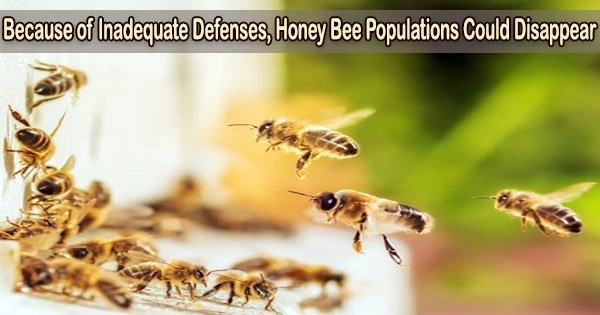Because of the different levels of exposure to Vespa velutina over the course of evolution, researchers from the Xishuangbanna Tropical Botanical Garden (XTBG) of the Chinese Academy of Sciences and the University of California, San Diego have predicted that the presence of Asian honeybee hornets will harm Apis mellifera colonies more than Apis cerana colonies.
The study was published in Entomologia Generalis.
Co-evolution with the predator limits collective defense. Collective nest defense is crucial in social insects like honey bees.
However, it is not fully understood how a predator attack on a colony of social insects could have cascading effects that both directly diminish the number of colony members and indirectly stress the colony’s ability to reproduce.
Asian honey bees (Apis species) have co-evolved with predatory Asian hornets (Vespa species) and have evolved several counter-strategies. When V. velutina hornets attack, A. mellifera colonies can defend themselves by forming a thick “bee carpet” made up of a huge number of bees clustered at the nest entrance. However, this defense is not always effective.
In addition to direct predation, predator-induced stress may contribute to A. mellifera colony decline. Our results suggest that a largely ineffective defense, such as bee carpet response in A. mellifera, can contribute to population collapse in a social group.
Professor Tan Ken
In light of this, the researchers quantified fitness effects throughout seasons in the presence and absence of hornets, and examined hornet attacks and honey bee colony fitness proxies (number of eggs, pupae, and workers) in apiaries with both bee species but with and without hornets.
They found that hornet attacks significantly reduced colony fitness of A. mellifera, but not A. cerana. A. mellifera, unlike the native A. cerana, greatly reduced foraging, and experienced higher hornet predation on foragers when attacked by the native V. velutina auraria.
They discovered that A. mellifera responded to hornet attacks with more guarding and halt signals than A. cerana. Attacks in A. mellifera led to decreased worker numbers, fewer pupae, and fewer queen eggs, as well as colony mortality.
Contrarily, hornet assaults on A. cerana did not cause decreases in the same proxy measures of colony fitness.
“In addition to direct predation, predator-induced stress may contribute to A. mellifera colony decline. Our results suggest that a largely ineffective defense, such as bee carpet response in A. mellifera, can contribute to population collapse in a social group,” said Prof. Tan Ken of XTBG.
















